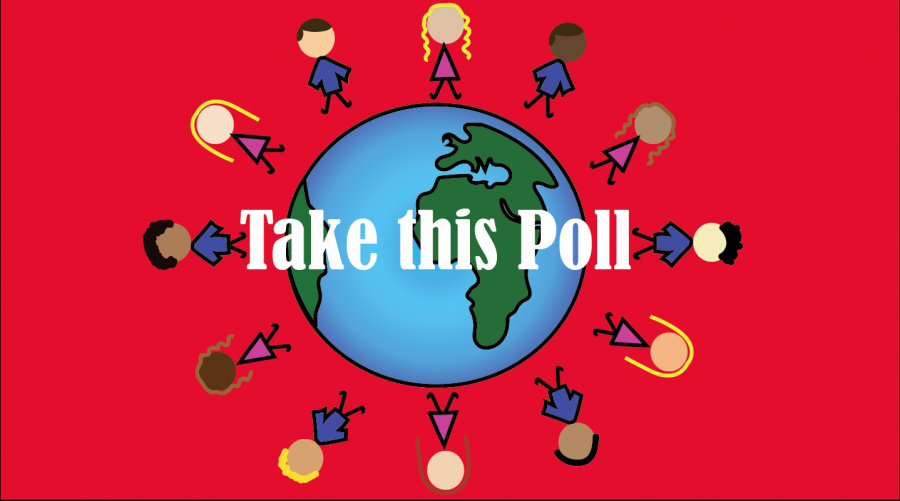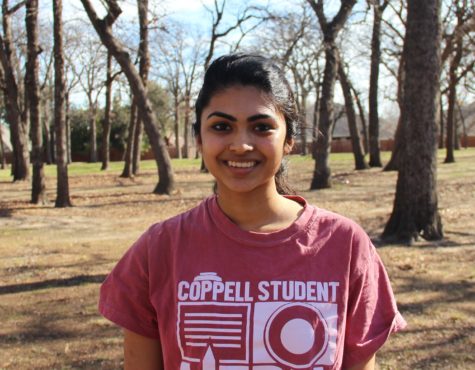And We Ask, “Are We American?”
December 8, 2015
The US is the only developed country, besides Canada, to still grant birthright citizenship to every person born on American land, no matter the origin.By repealing the constitutional provision of more than a century ago,the ever-pressing issue of illegal immigration could be solved, the diversity that the US has been known for in its historic legacy of immigration devastated, America left American, extra financial assets spared, and statelessness or citizenship limbo of thousands created.
GOP 2016 candidates including Donald Trump and Rick Santorum have been outspoken for ending the Fourteenth Amendment, while others like Hilary Clinton and Marco Rubio support its continuation. But, what do YOU think?
[polldaddy poll=9223839]
Meha Srivastav
Staff Writer
@theofficialMeha
“Sanne-Jana.”
“It’s Sanjana.”
“Sannjayna”
“Sanjana”
“So, Sanjannie”
And slowly, our identities are lost. Outspoken, shamed and finally cast off. Because others can not always pronounce that extra syllable, the homemade dish pulled furtively outside.
They cannot enunciate the other side of our bicultural lives or comprehend the need some have for a sheepish shadow when parents blare us into a congregation of our own festivals, out at Fort Worth with the 65 other reminders of who many can choose to be. Just when no one else is looking.
The minority is trampled over. And after clambering its way up, it hitches to the crowd’s back. You do not bother to correct her anymore, the teacher who trips over your name in roll call, and unintentionally rolls its syllables out of an American convenience machine.
You spoke up once, remember? The first time she said your name. And maybe the second and third. But then you felt it again, the way you do when you are standing in a throng of people; you are with them, and you feel alone. Something peels you from the side, and you are exposed. See that hole there? You can hide. You can shed off your culture and leave behind just a color, and never look back.
And let’s face it – it is easier. It is comfortable for many people to avert questions from the Western shoes crossing an Asian home, or the pair of eyes wondering at the sacred thread around a wrist. These were traditions that once ran through you like blood, but at one point, you began to doubt.
So easily we give up what we are for what everyone else is. And this is the minority, a race made because their numbers were few. This is me, however much from a minority, speaking up to tell you that the word “minor” has nothing to do with us.
My mother would tell her Indian daughter a story, of what a caucasian man had once said to her, “Can I call you Mary?” like she was an entity for the majority to strip away for a subtitle. But my mother was proud of who she is, and she held on to her name.
Today, in the place that we are, it is not even something that we ask of. Ignorance of diversity and cultures just is not as much a matter here, in this school with an almost equal population of African Americans, Caucasians, Native Indians, Asians, Hispanics, Pacific Islanders. Of people from everywhere and still all American.
But here comes the question: are we really? Even when our parents have lived here for years, immigrants in the land wrought from immigrants, and we are unquestionably part of this nation, to what extent do we identify ourselves as really being American? As being natural entities of a land predominantly ‘white’?
Chae Yang is a junior of Korean origins, here at CHS.
“When I first came here, no one could say my name,” Yang said. “So my mom told me to go for what’s convenient for everyone.”
Now people call her Cheny.
“We’ve kind of thrown our Korean culture away, but this is just more comfortable,” Yang said.
Would she feel comfortable saying her name aloud to a crowd of white Americans?
She replied that she would not.
Christine Young, a CHS sophomore from China, born in America, was not always Christine Young.
“My name used to be Yang Meixin, but my parents decided to change our family name,” Young said. “But I’ve been trying to connect more with my Chinese culture though sometimes I sort of live in fear, because I don’t want people judging me because I’m ‘this’ sort of race.”
And has she ever tried to be Yang Meixin again?
“I used to be in a Chinese class here in CHS,” Young said. “But every time people would try pronouncing my name, I just gave up really. They would always pronounce it wrong.”
So who are we, the children of immigrants in a land once born of other immigrants? Where are we placed when we still pledge our allegiance, take out our morning brew from Starbucks and watch fireworks blaze over the Fourth of July, but by the will of some politicians, may not even be legally born American soon?
One and a half centuries ago, the Fourteenth Amendment transformed African American slaves of America into legal citizens of a nation that was just beginning to gestate a universe. The Filipino, Chinese, Japanese and Indians followed, though definitely not without pursued obstruction. And the original 400,000 legal or illegal citizens became the monumental 105 million non-whites of today.
Not all can raise the stars and stripes above their heads without the fear that will ripple our flag and bring the Homeland Security department to their doors, but they all can give birth to Americans, whether “brown” or “yellow,” legal or illegal.
At least until they can not. Donald Trump and other Republicans have proposed to end birthright citizenship, to end illegal immigration to the United States, as the Washington Post reports.
Natural citizenship, aside from a political standpoint, has given the identity to millions of children who travel to their parents’ native nation over the summer, when cousins wrest their famously American candy and their famously American accents to tease. Will not boasting an innate label of “American” change us?
It is time we be the nations we wrongly cast away as our parents’ nations. It is time we pronounce ourselves and who we really were born as before we endorse a culture that we should adopt, but not become in superiority to another.
But I think we must find our place in this country too, alongside with our place somewhere else in this world. We are American, and we are from Burma, from Nepal, from Malaysia, from Angola, from the country whose name I will now onwards proudly tell you how to say.
My name is Me-ha Sri-vast-tav, an Indian and an American. I once hid, mortified and red cheeked, when my mother came to my elementary school in Georgia and spoke exuberantly to my class about the fearless fortitude of the Indian freedom fighter, Mahatma Gandhi. I will not ever have to hide again.
I think it’s time we all start pronouncing that.











Maya Shenoy • Jan 22, 2016 at 6:19 pm
Great piece Meha! Very insightful and really resonated with me and my family (all of whom, apart from me, have names that people find hard to pronounce. Thanks for posting
Meha Srivastav • Feb 6, 2016 at 7:49 pm
Thanks so much Maya! Oh haha true (your name), and I’m so glad you read it.
Oh haha true (your name), and I’m so glad you read it.